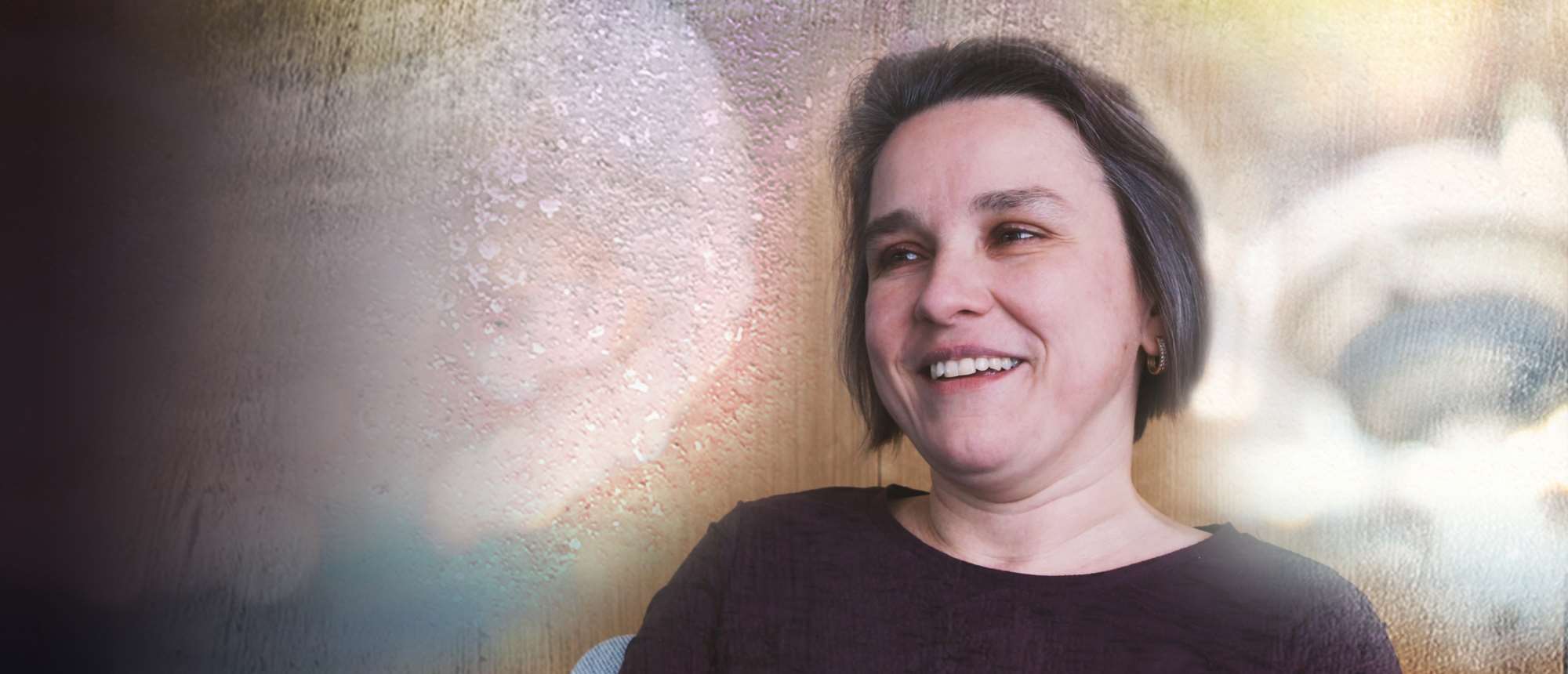Her First Love: MCW Professor has a Passion for Studying Viruses

According to Vera Tarakanova, PhD, associate professor of microbiology and immunology at the Medical College of Wisconsin (MCW), because biologists and virologists work with systems that are not human-generated, it’s a challenge to learn how those systems function.
“So if you’re trying to understand how it works, you have to come up with some kind of way you think it might work,” Dr. Tarakanova says. “That’s where the creativity comes in.”
That creativity leads to ideas about why certain viruses function the way they do. Oftentimes those ideas turn out to be wrong, a humbling experience, but one that also leads to greater rewards, she says.
“In getting an answer that’s not expected, that actually opens up a whole new area of discovery that I wouldn’t have thought about or assumed if I didn’t ask my question,” says Dr. Tarakanova.
By studying the virus, it tells her things, she says.
“You ask the virus more questions after that,” she explains.
Such is the process of learning how viruses work. It’s a task Dr. Tarakanova fell in love with after spending a rotation in a virology lab. Her first love, she calls it. The work is fruitful. Virologists, she shares, have helped spur many advances in science, including discoveries that led to the COVID-19 vaccine.
That particular vaccine was the result of decades of research on coronaviruses, which explains why the public had access to it so soon. Virologists had already learned through that research how the immune system could attack other coronaviruses and had access to technology needed to create the new vaccine.
“Everything was in hand, the knowledge and the technology,” Dr. Tarakanova notes. “That’s why we could get a vaccine in 9 months and not 10 years.”
Another, even more ancient virus, the gammaherpesvirus, is Dr. Tarakanova’s current focus. Two distinct gammaherpesviruses are extremely common in humans, with one of the two viruses, Epstein-Barr virus (EBV) establishing life-long infection in more than 95 percent of adults worldwide, including in the US. Of all herpesviruses, gammaherpesviruses are unique because they actively drive a variety of cancers, including B-cell lymphomas, which is the focus of Dr. Tarakanova’s research group.
How does this virus drive these cancers in the lymph system? Many gammaherpesviruses, such as EBV, set up shop in B cells, a type of immune system cell, and then manipulate and mutate them, Dr. Tarakanova explains.
This is understood. What’s not yet known is how the virus manipulates that cell to cause cancer.
“That’s one of the things that we’re trying to understand,” she says.
Dr. Tarakanova looks at her research on gammaherpesvirus and other viruses as similar to putting together a puzzle. The virus gives her one piece at a time. Fitting them together, you get the bigger picture, she explains.
Pieces of the gammaherpesvirus puzzle include clues about what genetic and environmental factors are more likely to lead to cancer. Is it the medicines one takes every day? Certain diet? Exposure to environmental factors? Variations in genes inherited from mom and dad?
“I think a combination of genetic screening and also being mindful of environmental things would be the answer to validating somebody’s susceptibility,” Dr. Tarakanova says.
It’s a process her lab is working to understand along with a larger community of virologists who also study gammaherpesviruses. Dr. Tarakanova hopes that together, they will develop a process to assess viral cancer risks and provide more therapeutic targets.
As she continues this vital work, Dr. Tarakanova also is working to mentor the next generation of scientists in the classroom and her lab. Some, she says, have and will stay in virology while others move on to different sectors of public health, which is just fine with her.
“I think they need to first realize what it is they’re passionate about and how it is they see contributing to society themselves, and having some bigger goal,” she says. “My job is to prepare them for the next step that is ultimately going to set them up to be where they want to be.”



